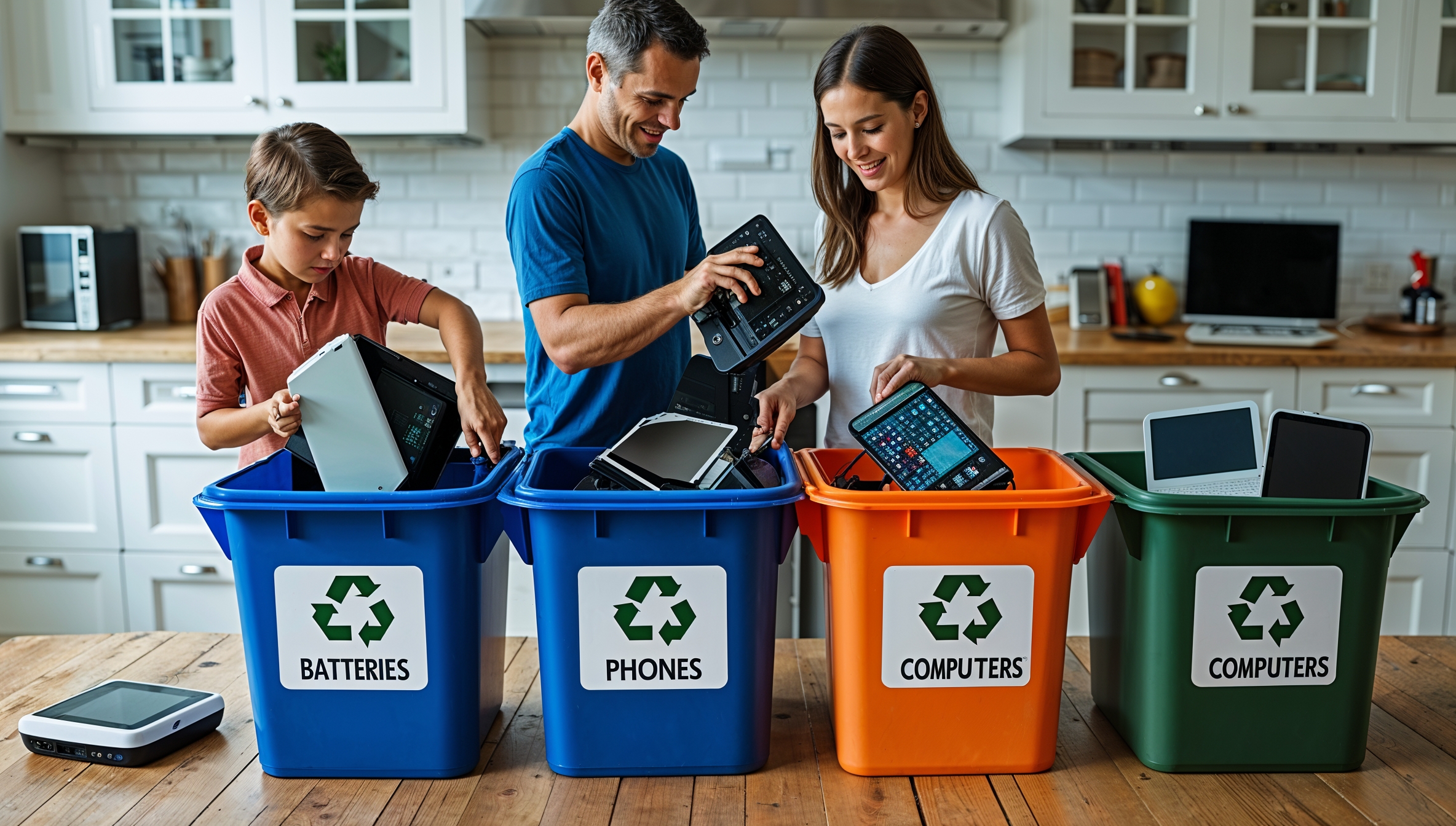
Learn how to properly dispose of old electronics in the UK. Protect the environment and your data by following these simple steps for e-waste recycling.
How to Properly Dispose of Old Electronics in the UK
Electronic waste, or e-waste, is a growing problem worldwide. Disposing of old electronics improperly can have severe environmental consequences, leaching harmful toxins into the soil and water. In the UK, we have specific regulations and options for responsible e-waste disposal. This guide provides a comprehensive overview of how to properly dispose of your old electronics, ensuring you’re doing your part to protect the planet and your data.
Understanding the Problem of E-Waste
E-waste contains a cocktail of hazardous materials, including lead, mercury, cadmium, and brominated flame retardants. When these substances are dumped in landfills, they can contaminate the environment and pose serious health risks to both humans and wildlife. Furthermore, e-waste often contains valuable materials like gold, silver, and copper, which can be recovered and reused, reducing the need for mining new resources. Proper disposal allows for this resource recovery.
Before You Dispose: Consider Reuse and Repair
Before jumping straight to disposal, ask yourself if your old electronics can be reused or repaired.
- Can you donate the item to a charity or community group? Many organisations accept used electronics, particularly computers and mobile phones, for refurbishment and redistribution.
- Could the item be repaired? Sometimes a simple repair can extend the life of your device. Consider contacting a local repair shop or checking online resources for DIY repair guides.
- Could you sell the item? Online marketplaces and classified ads are a great way to sell unwanted electronics, giving them a new lease on life.
Securely Erasing Your Data
Before donating, selling, or recycling any electronic device, it’s crucial to erase your personal data.
- For computers and laptops: Use a secure data wiping program to overwrite the hard drive multiple times. Simply deleting files or formatting the drive is not sufficient.
- For smartphones and tablets: Perform a factory reset to remove all personal data and settings. Also, remove any SIM cards or memory cards.
- For other devices: Check the manufacturer’s instructions for data erasure procedures. For example, some printers store scanned documents in their memory.
Recycling Options: Approved WEEE Recycling Centres
The Waste Electrical and Electronic Equipment (WEEE) Regulations in the UK aim to reduce the amount of e-waste going to landfill. This means producers are responsible for financing the collection, treatment, and recycling of their products. Here’s how you can participate:
- Local Council Recycling Centres: Most local councils operate recycling centres that accept e-waste. Check your council’s website for information on accepted items and opening hours.
- Retailer Take-Back Schemes: Many retailers that sell electrical goods are required to offer a take-back scheme. This means you can return your old electronics to the retailer when you purchase a new item, even if it’s not the same brand. Look for the “Distributor Take-back Scheme” logo.
- Approved WEEE Operators: Use a reputable and authorised WEEE recycling centre. You can find a list of approved operators on the websites of organisations like the Environment Agency. They are legally bound to dispose of your items responsibly.
- Collection Services: Some companies offer collection services for e-waste, particularly for larger items like televisions and refrigerators. Be sure to check their credentials and ensure they are authorised WEEE operators.
Items That Commonly Need Recycling
The following list includes some common items that require careful disposal:
- Computers and laptops
- Mobile phones and tablets
- Televisions and monitors
- Printers and scanners
- White goods (refrigerators, washing machines, ovens)
- Small appliances (toasters, kettles, blenders)
- Power tools
- Toys with electronic components
- Light bulbs (especially fluorescent tubes and energy-saving bulbs)
- Batteries (all types)
Dealing with Batteries
Batteries, particularly lithium-ion batteries found in laptops and mobile phones, are a fire hazard if not disposed of correctly.
- Remove batteries from devices before recycling whenever possible.
- Store batteries in a non-conductive container, such as a plastic bag, to prevent short circuits.
- Dispose of batteries separately from other e-waste at designated battery collection points, often found in supermarkets and libraries.
Avoiding Illegal Export and Landfill Dumping
It is crucial to ensure that your e-waste is processed properly within the UK and not illegally exported to developing countries, where it may be processed in unsafe conditions, harming both people and the environment. Always use reputable and authorised recycling services. Landfill dumping is illegal and carries significant penalties.
The Future of E-Waste Management
E-waste management is constantly evolving. Innovations in recycling technologies are making it easier to recover valuable materials and reduce the environmental impact of e-waste. By staying informed and choosing responsible disposal options, you can contribute to a more sustainable future.
